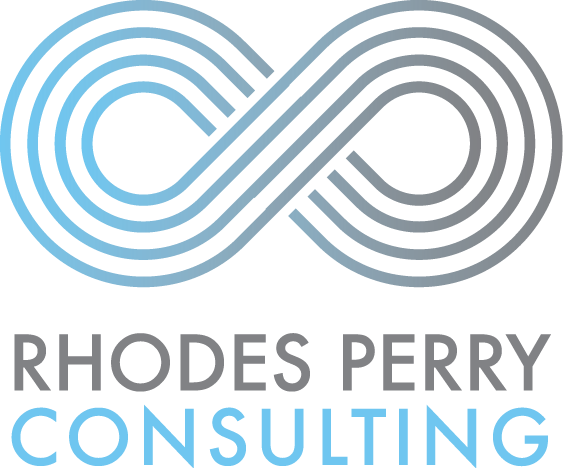Should You Cover Being LGBTQ+ On the Job?
Coming out to friends and family is a difficult choice and an important moment for members of the LGBTQ+ community – but doing the same at work is a different experience altogether. In both instances, you have to consider whether you are ready, willing, and able to do so. It’s a nuanced decision, given considerations about career aspirations, job security, and – sometimes – even personal safety.
Ready, Willing & Able?
Before jumping out of the closet, let’s consider three key factors: 1) readiness, 2) willingness, and 3) ability:
1) Readiness. Asking the following questions will help you assess how ready you and your organization are:
How would your colleagues react to the news?
Is there any particular peer of yours that you can trust to come out to?
More importantly, what do you want to happen after you come out?
2) Willingness. Once you’re ready, you’ll have to consider whether you’re willing to go through the motions of reintroducing yourself to your colleagues and balancing their changing perceptions of you. Kenji Yoshino’s 2006 article on ‘Covering’ speaks about how coming out may lead to other people forming certain expectations of you. These issues can mean that some prefer not to come out at work, in order to minimize perceived threats to how you are perceived by others.
3) Ability. You also have to assess whether you are able to come out at work in the first place. Contrary to popular opinion, the United States lacks a federal law prohibiting LGBTQ+ workplace discrimination. This means that if you live in one of these 29 states, you can be fired from your job simply for who you are, or who you love. Understanding workplace discrimination laws in your state and your company's own policies can help you decide whether or not it’s safe to come out.
Pros and cons
Making a list of pros and cons of what you can anticipate makes it slightly easier to arrive at an important life decision like coming out. Below are some pros and cons of covering being LGBTQ+ at work.
Pro: Coming Out Might Feel Like a Weight Has Been Lifted Off Your Shoulders.
It’s difficult playing the “pronoun game” when discussing your partner or spouse at work, or to dodging personal questions about your gender history if you are transgender. You may even doubt yourself when someone asks for your opinion about LGBTQ+ workplace matters, repressing you own lived experience that could inform the conversation. Coming out may reduce some of these burdens.
Con: Coming Out May Make you Vulnerable
Workplace microaggressions, discrimination and bullying exist in far too many workplaces. Coming out may lead to mistreatment on the job between colleagues and other stakeholders. Things can get more complicated if power dynamics manifest with your manager or supervisors who many treat you differently because you are LGBTQ+.
Pro: Serve as a Possibility Model
When you come out, you will find fellow champions for LGBTQ+ workplace inclusion champions, and you will serve as a possibility model for younger LGBTQ+ workers. By being you, you are helping others see LGBTQ+ excellence, and you give them something to aspire to. After all, some of us need to “ee it in order to be it.”
Con: Unwanted Emotional Labor
On the flip, others may expect you to educate them on everything they ought to know about LGBTQ+ people You may get unwanted attention from heterosexual colleagues who might feel it’s okay to ask uncomfortable questions. Like the stereotypical “gay best friend,” you are suddenly the “gay colleague,” expected to be knowledgeable on all things LGBTQ.
Your Turn
Now that you have the hang of the pros and cons of coming out at work, what are a few specific to you? Go ahead, take a pause from this article and think through a couple, or better yet, write them down or type them up. Be intentional and purposefully come out when you are ready, willing & able.
If you need more support on if, when or how to come out on the job, consider speaking with a culturally specific mental health provider. Organizations like Queerly Health, Better Help and the Coming Out Coach are well positioned to connect you with a skilled professional who can support you along the way.
Regardless of where you are in this process, know that you are not alone. In fact, nearly 80% of LGBTQ+ workers have covered who they are, or who they love at least once. Being patient with yourself, and accepting where you are with the process today is a radical act of kindness you can do for you.
For the Allies Still Reading…
Allies, know that you have a role in building a better workplace for your LGBTQ+ colleagues…
In fact, we are expecting the United States Supreme Court to rule any day on whether LGBTQ+ workers are protected from job discrimination under the Federal Civil Rights Act of 1964. This ruling will have a significant impact on the 46% of LGBTQ+ workers struggling with being out on the job.
On a recent Out Entrepreneur Podcast, Rhodes Perry moderated a panel discussion with a number of thought leaders exploring what the ruling could mean. The panel shares ideas for what the 21 states and businesses with strong LGBTQ+ employee protections could be doing now to demonstrate their commitments.
If you want to do something more for your LGBTQ+ colleagues during these very uncertain times, make the investment in your own self-education and enroll in Rhodes Perry’s 30 Day Pride Challenge. During the month of June, you’ll receive coaching, peer support and skills to put your allyship into action.
Let’s work together and truly build belonging at work!
Article exclusively for the Belonging at Work Blog
Authored by Allie Cooper

